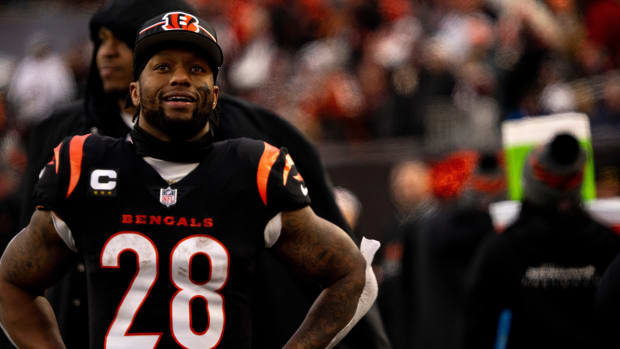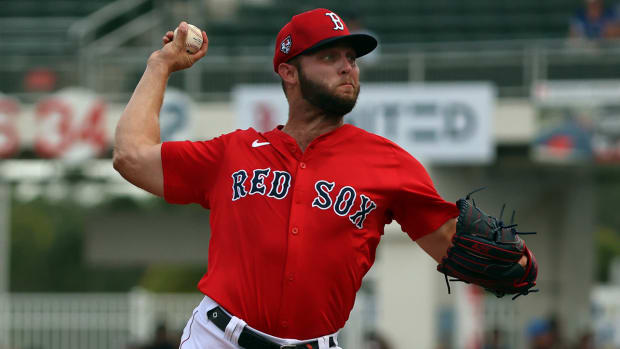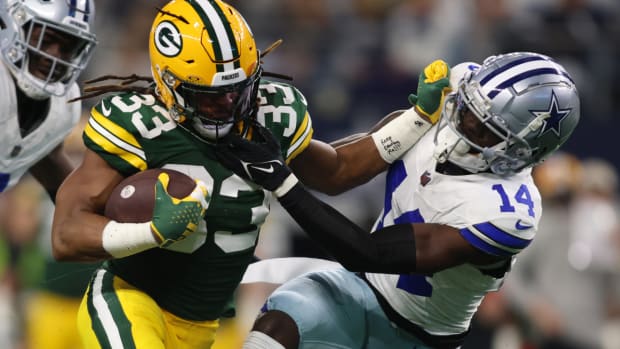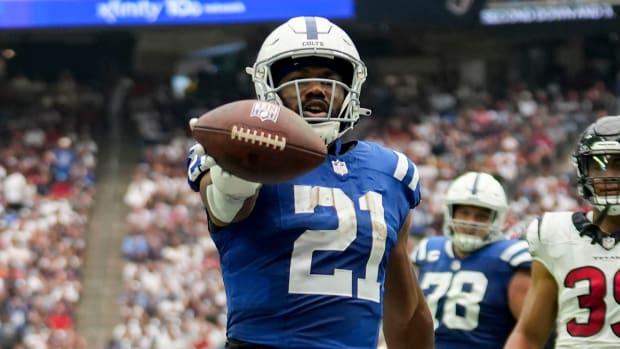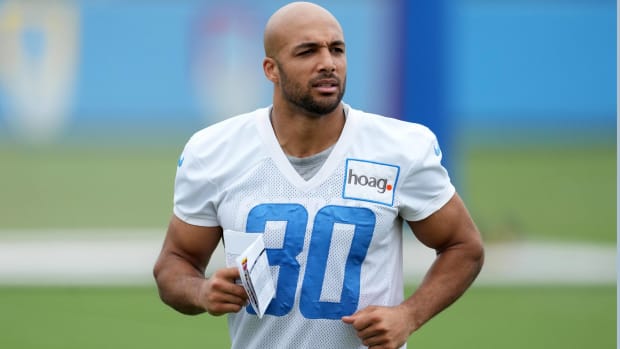
For better, for worse: Lineup position can make, break season
It has been said many times that you're only as good as the company you keep. Within a baseball context, a player's place in the lineup is largely indicative of that player's overall talent; further, the lineup in which a player bats can dramatically impact that player's performance.
While historian and statistician Bill James largely debunked the notion of "lineup protection" years ago, it remains abundantly clear that the context in which a batter hits will necessarily influence the corresponding statistics. Independent of the home run and the rare steal of home, players cannot score runs of their own accord. As such, runs and runs batted in are largely team-driven statistics. Ultimately, hitters are going to hit, and good hitters are going to hit well, but it is often the context of those hits that allow players to become viable fantasy commodities.
With teams in constant flux, every new season features players whose value is influenced by the context of their play. And 2010 is certainly no exception. For fantasy purposes, it's important to keep abreast of lineup changes. Knowing where a player hits can be invaluable in determining how a player will hit.
A player with a positive lineup change is For Better; a player relegated to a horrible lineup position relative to his skills is For Worse.
Carlos Gomez, CF, Milwaukee Brewers. A top-notch defender and arguably the fastest player in the game, Gomez's inability to get on base consistently (.294 career OBP) forced the Twins to hide his bat at the bottom of the lineup. In 2008, during his only season as a full-time player, Gomez stole 33 bases, but his limited bat kept him from being able to capitalize on his speed.
His game took a step back in 2009. His poor batting, punctuated by a .623 OPS, ultimately forced Gomez to the bench for all but pinch-running and defensive duties. However, following an offseason trade, he's slated to begin the 2010 season hitting second in what could be a potent Brewers' lineup. If he can coax himself on base, his position in the lineup should allow him to score plenty of runs and amass enough steals to regain fantasy relevance.
Hideki Matsui, DH, Los Angeles Angels. The man fans affectionately call "Godzilla" enters 2010 as the reigning World Series MVP, although he no longer plays for the team for which he won the honor. With the Yankees in 2009, even with ailing knees, Matsui hit 28 HRs and drove in 90 runs. He's since switched teams, vacating the fifth spot in the Yankees order to bat clean up for the Angels. With a strong Angels lineup that features on-base machine and former Yankee teammate Bobby Abreu (among others), Matsui could be poised for a big RBI season, and for a player with an ADP of 242.83, he represents a significant bargain for fantasy owners.
Milton Bradley, OF/DH, Seattle Mariners. During his career, Bradley's had only two seasons in which he's topped 500 plate appearances; most recently, as a member of the Texas Rangers in 2008. That year, Bradley led the American League in OPS (.999) and was selected as an All Star, finally living up to his vast potential. He signed a lucrative 3-year contract with the Cubs prior to 2009 but quickly wore out his welcome. Traded to Seattle in the offseason, Bradley has joined his eighth team in 11 years. Due to injuries and acrimony, Bradley has always had difficulty staying on the field, but when he has played (e.g. 2008), he's played very well. He'll begin the year as the Mariners clean-up hitter, with the fortune of having table setters Ichiro Suzuki and Chone Figgins, who in 2009 combined to score 202 runs with 408 hits, on base in front of him. While he's bound to miss some time here and there, the RBI opportunities should be bountiful for Bradley and a return to form would not surprise.
Elvis Andrus, SS, Texas Rangers. Barring injury, Andrus will play every day for the Texas Rangers in 2010. He's a Gold Glove-caliber shortstop with speed to burn. His 33 steals as a rookie are indicators of fantasy potential. Hitting atop a potentially lethal Rangers lineup, he seemed to be strong source of runs and stolen bases in 2010. Alas, he's not hitting atop the Texas batting order. Rather, Andrus is set to begin the year as the Rangers No. 9 hitter, which may not cost him a significant number of steals, but that fact makes it unwise to consider him a strong source of runs. Temper expectations as long as he's relegated to the bottom of the batting order.
Geovany Soto, C, Chicago Cubs. Soto had a fantastic first season in the league (.285-23-86), ultimately earning 2008 National League Rookie of the Year honors. His sophomore season wasn't exactly what he or fantasy owners hoped for, as he slumped and limped to just .218 with 11 HRs. Entering this season, fantasy owners seemed guardedly optimistic of a rebound, drafting Soto 9th among catchers (148.67 overall). Yet, even with the potential of a bounce-back in 2010, last year's disappointing season was a strong indicator that the standards he set as a rookie are potentially out of reach. Sadly, hitting near the bottom of a mediocre Cubs order isn't going to offer many chances at fantasy redemption.
Jack Cust, DH, free agent. Oakland's leader in home runs each of the last three seasons, Cust is a prototypical three-true-outcomes hitter with fully 51 percent of all his 2009 plate appearances resulting in a home run, walk, or strikeout. Yet, over those three seasons, Cust's performance has been in steady decline. His 2007 season was a useful one for fantasy owners as a .256 average, .408 OBP, and .504 SLG showed he was a capable hitter. Yet by end of 2009 his slash stats appeared far less impressive -- .240/.356/.417. As a full-time DH, Cust's lack of defensive value and rapidly declining production eventually convinced the club that he was expendable, and he was released on the eve of Opening Day 2010. To that end, players without teams are of little use to fantasy owners.

































